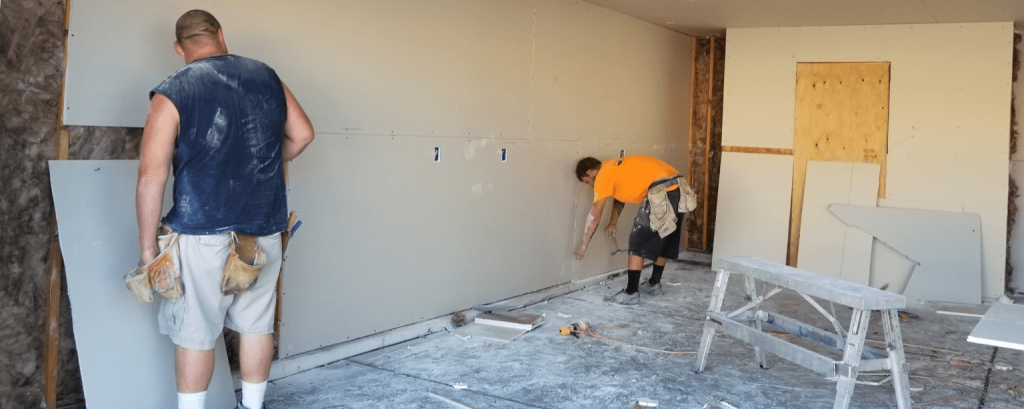Montana Business Insurance
Get A Custom Quote in 10 Minutes
Simply Business is pleased to provide tailored insurance options from:
When you’re excited about starting or growing your business, the last thing you want to do is think about accidents or situations that could bring your business to a halt. So taking a few minutes today to get familiar with Montana business insurance could save you a lot of time and trouble.
Once you understand the basics of business insurance, figuring out what policy you need becomes much easier.

Montana Business Insurance: The Basics
Insurance policies vary, but typically work similarly.. Typically, you choose a policy with a coverage limit and cost that fits your needs and budget. Then you pay a premium to maintain the coverage. If an accident occurs, you can file a claim so that your policy could potentially cover the expenses (if included in your coverage).
Montana business insurance typically is not much different. There are several specific policies to choose from, but business insurance generally covers accidents caused by your business.
If you face a hefty bill for damages — or worse, a lawsuit — your policy might be able to step in and pay some of those expenses. Considering that the average customer slip-and-fall claim is $20,000, most business owners would be happy to get help covering those costs.
Some things Montana business insurance can help you do include:
- Build trust with potential customers
- Stand out from competitors or scammers
- Attract and retain the best employees
- Secure business loans
- Rent office or retail space
How can one small insurance policy pack such a punch? Getting insured shows you’re committed to your business and customers, and that you have someone in your corner to help if something goes wrong.
General liability insurance in Montana
When you learn about business insurance and picture it in your mind, general liability is probably what comes to mind. As the term “general” suggests, this business insurance policy is helpful in various situations.
General liability insurance usually covers:
- Bodily injuries
- Medical expenses
- Claims from defective products
- Third-party property damage
- And more
These terms can feel a bit vague, though, so let’s look at a few scenarios:
- A builder is helping a homeowner install custom cabinets when the builder drops one on the floor. The cabinet breaks and the floor is damaged. Double uh-oh.
Without insurance, the builder might have to pay for the damage, which makes a dent in their savings. A general liability insurance policy could help cover the bills up to the policy limit.
- An upholsterer knocks over a client’s china cabinet as they’re carrying an armful of cushions out to their vehicle. Most of the valuables in the cabinet break, and the homeowner sues for the value of their heirloom collectibles.
If the upholsterer doesn’t have insurance and adequate business savings, they may have to dip into their personal finances to pay for the damaged china cabinet and the collectibles. However, a Montana business insurance policy might be able to cover the costs and make the whole fiasco easier to recover from.
- A florist is reorganizing the shop after a big shipment when a customer comes in to browse. Unfortunately, the customer trips on the corner of a rug and breaks their wrist while bracing their fall.
The customer sues the shop, and the business owner has to use the money they had saved to relocate to a larger shop, and now has to cover the bills from the accident. If the florist had insurance, they could file a claim to potentially help with the costs.
Since simple accidents can happen anywhere, Simply Business works with more than 80 types of business. But do you need general liability insurance in Montana to operate legally? It typically depends.
While there’s generally no statewide rule for general liability insurance in Montana, some occupations may need to show proof of insurance when applying for a license. You can visit the Montana Department of Revenue’s website to find professional and/or local license requirements applicable to your business.
Examples of some of the occupations with requirements for general liability insurance in Montana include:
- $30,000 for pesticide applicators
- Auto dealers must submit proof of liability insurance
- $1 million in injury coverage and $500,000 for property damage for elevator contractors
Want to start a contracting business in Montana? Check out our guide to getting licensed.
If you’re unsure if general liability insurance could benefit your company, you can talk to a licensed insurance agent at 855-559-0281. It’s also free and easy to get custom insurance quotes from the nation’s trusted insurers.
Professional liability insurance in Montana
Understandably, some occupations seem more dangerous than others. While it’s easy to imagine accidents or injuries on a construction site, you might think that you’re safe sitting at a desk.
Instead, negligence claims could be a top risk for businesses such as consultants, accountants, real estate agents, and more. If a client believes that your services harmed them or set them back in some way, they may claim that you acted negligently.
If this happened, regardless of whether you messed up or not, the client might sue your business for the damages.
If this happens to you, your best case scenario is that you can prove you weren’t at fault. Even so, you’ll likely rack up legal bills defending yourself. In the event you did make a mistake, you might need to pay for the damages.
Unless you have tens of thousands of dollars set aside in case you face a lawsuit, you should consider professional liability insurance in Montana. This type of policy could help you pay for the fallout from a negligence claim.
Professional liability insurance typically covers:
- Negligence or claimed negligence
- Claims and damages
- Copyright infringement
- Legal defense costs
- Libel and/or slander claims
- And more
Requirements for professional liability insurance in Montana can vary among occupations. For example, private investigators need to show proof of errors and omissions insurance when applying for a license. Often, the business owner can decide if they want coverage or not – depending on your trade and location. If your competitors opt to not get covered, then having a policy could be a competitive advantage.
Montana workers compensation insurance
A few things happen when you hire your first employee. For starters, you can take on extra jobs or work faster. Something you may not think about right away are the extra insurance requirements.
Most employers need Montana workers compensation insurance, even if you have just one employee. While there are exemptions to this rule, you should generally plan on getting a workers comp policy when you hire your first employee. Typically, even having a part-time worker requires insurance.
Workers compensation insurance typically covers:
- Lost wages
- Medical payments
- Rehabilitation costs
- Death benefits
Why is workers comp insurance required in Montana? This type of policy can help cover the costs of an injured on the job, or sick employee, which benefits everyone. With a workers comp policy in place, workers get the peace of mind that they’ll be taken care of if they get hurt on the job. Since the average workers comp claim is $41,000, having a policy to help with bills is also advantageous for employers.
Other types of business insurance in Montana
Take a moment to think about where you’ll run your business and what assets you need. If you can’t easily replace those elements of your business, you may want to consider additional policies, including:
-
Home-based business insurance. Starting your business from the kitchen table is a fast and affordable way to get started. However, your home insurance policy might not cover your business. There are an estimated 15 million home-based businesses in the U.S., which means quite a few people should review home-based business insurance.
-
Commercial auto insurance. All motor vehicles in Montana need insurance, but your current policy might not cover business activities. If you’re going to use your car in your business, be sure to talk to your agent.
-
Commercial property insurance. If you have a lot of tools or equipment for your job, you may want a commercial property insurance policy. These plans could help you replace damaged or stolen items, which would allow you to get back to work faster.

Montana Workers Compensation: What You Need to Know
Since Montana workers compensation insurance typically isn’t optional for employers, you probably want to know how to keep costs low. Generally, your workers comp premiums could depend on:
-
The type of work you do, since some industries have higher accident rates than others
-
How many employees you have. More employees likely means higher coverage amounts. After all, more people can mean more chances for human error.
-
Your accident history. The fewer accidents you have, the less risk you usually pose to insurance companies.
Safety is such a critical part of workers comp that the state requires every employer to have a safety training program for all workers. The more you invest in continually training and enforcing safety procedures, the better off you and your employees will likely be.
If you have other Montana workers compensation questions, check out the Montana Department of Labor & Industry’s website.
How Much Does Montana Business Insurance Cost?
The cost of Montana business insurance may be more within reach than you expect, since each policy is tailored to you.
Rather than paying for an inflated policy, you can choose the coverage that fits your current needs and budget. You also can save money by bundling your policies and writing off insurance on your business taxes, depending on your specific business and location.
If you want to see exactly how much your Montana business insurance will cost, take a few minutes to get a custom quote online.

How Do I Get Business Insurance in Montana?
You just took in a lot of Montana business insurance information, so let’s recap the key policies:
-
General liability insurance in Montana typically covers accidents like customer injury or property damage. Requirements vary by occupation, but many business owners can benefit from it.
-
If a customer thinks your work harmed them, they might sue you for negligence. In that case, a professional liability insurance policy could potentially help you with damages and legal fees.
-
Montana workers compensation insurance is required for many employers, even if they have just one part-time worker.
Before you go on your way to find Montana business insurance requirements and a policy, here are a few tips and resources:
-
The Montana Business Checklist site helps you find and file business permits and licenses in one spot.
-
Professional license applications usually list insurance requirements for that type of job.
-
If you perform multiple services, make sure you check for licensing and insurance requirements for all of them. You also need to check for local requirements with your county and city.
-
The Small Business Development Center can connect you with business mentors and resources.
-
Talk to local business owners or trade associations about which policies they have and recommend.
-
If you’re shopping for insurance on the Simply Business platform, feel free to reach out to our licensed insurance agents at 855-559-0281 to answer any additional questions you have.
Leave no Montana Business Insurance Question Unanswered
We understand that getting business insurance can be intimidating. So Simply Business is here to answer any questions. You can check out our Simply U blog, refer to our FAQs, or give us a call at 855-559-0281 with any questions you may have.
Businesses We Insure
- Architect Insurance
- Attorney Insurance
- Digital Marketing Insurance
- Dj Insurance
- Draftsman Insurance
- E-commerce Insurance
- Education Consultant Insurance
- Engineering Insurance
- Financial Planner Insurance
- Home Inspector Insurance
- Insurance For Insurance Agents
- Interior Design Insurance
- Insurance It Consulting
Other Businesses We Insure
- Land Surveyor Insurance
- Lawyer Insurance
- Life Coach Insurance
- Management Consultant Insurance
- Mortgage Broker Insurance
- Photographers Insurance
- Insurance For Private Tutors
- Project Manager Insurance
- Real Estate Agent Insurance
- Social Work Insurance
- Tax Preparer Insurance
- Travel Agent Insurance
- Videographer Insurance
This content is intended to be used for informational purposes only. It is not intended to provide legal, tax, accounting, investment, or any other form of professional advice.